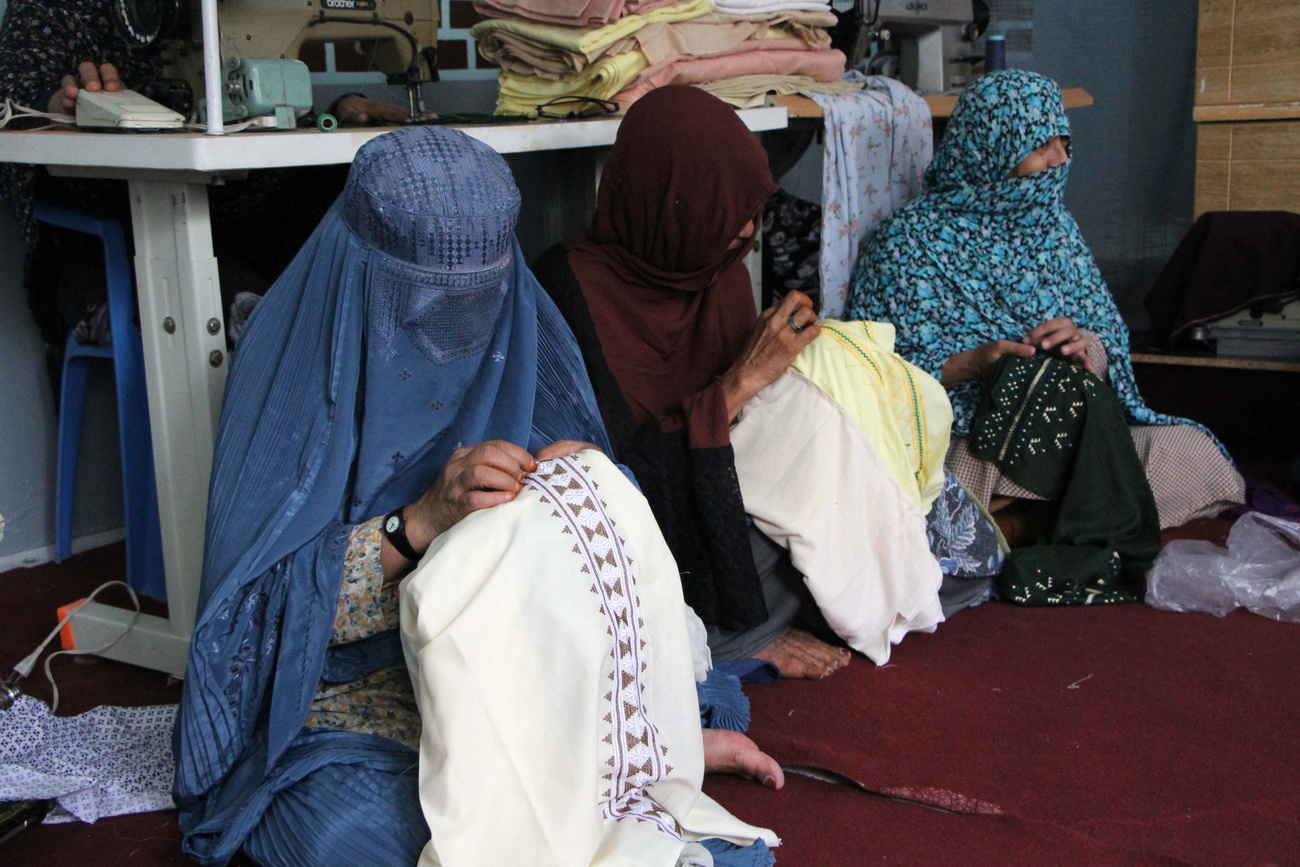
States criticise Taliban’s new morality law

Almost 60 countries, including Switzerland, have issued a joint statement condemning a new morality law introduced in Afghanistan by the Taliban.
+ Get the most important news from Switzerland in your inbox
On Tuesday at the United Nations Human Rights Council states denounced “the long list of oppression of women” imposed by the Taliban.
In the three years since the return of the Taliban to power there have been more than 70 decisions and declarations against Afghan women, the countries said. Now women can only express themselves in private and must be accompanied when they go out, they added.
+ How distance learning keeps Afghan girls’ education hopes alive
The states denounced the denial of the human and fundamental rights of Afghan women. This attitude against women “will only worsen the humanitarian and human rights crisis” in Afghanistan, according to the declaration.
+ Student filmmaker in Switzerland highlights plight of Afghan girls
The signatory states called on the international community to consider “new steps adapted to the situation” to protect Afghan women, without giving further details. This support is “essential” to prevent the “systematic” elimination of these people from Afghan society, which would amount to persecution.
The UN and Switzerland have repeatedly condemned the Taliban’s morality law. Twelve of the 15 members of the UN Security Council, including Switzerland, expressed their “concern” last Friday. On Monday, the Swiss ambassador to the UN in Geneva, Jürg Lauber, criticised the morality law at the UN Human Rights Council.
Adapted from German by DeepL/sb
This news story has been written and carefully fact-checked by an external editorial team. At SWI swissinfo.ch we select the most relevant news for an international audience and use automatic translation tools such as DeepL to translate it into English. Providing you with automatically translated news gives us the time to write more in-depth articles.
If you want to know more about how we work, have a look here, if you want to learn more about how we use technology, click here, and if you have feedback on this news story please write to english@swissinfo.ch.

In compliance with the JTI standards
More: SWI swissinfo.ch certified by the Journalism Trust Initiative






























You can find an overview of ongoing debates with our journalists here . Please join us!
If you want to start a conversation about a topic raised in this article or want to report factual errors, email us at english@swissinfo.ch.